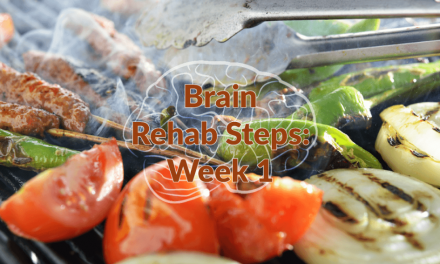Before we get into just how your gut started leaking, let’s make sure we’re on the same page. Leaky Gut Syndrome occurs when the tight junctions of the gut break apart allowing anything and everything into the bloodstream, which sets off an immune reaction. Toxins, partially digested foods, and microbes can and will enter the bloodstream and be recognized as foreigners to the immune system. The appropriate immune system response is to respond. Once the immune system responds, a person will experience symptoms. And guess what? They’re more than just gut-related symptoms.
Potential Symptoms of Leaky Gut
- Digestive issues: gas, bloating, indigestion, constipation, diarrhea, etc.
- Allergies and asthma
- Hormone imbalances
- Autoimmune disorders: Hashimoto’s, rheumatoid arthritis, lupus, celiac’s, etc.
- Chronic fatigue or fibromyalgia-like symptoms or diagnoses
- Mood imbalances: Anxiety, ADD/ADHD, depression, etc
- Skin issues: acne, eczema, rosacea
- Candida overgrowth
- Food sensitivities/intolerances
- Neurologic problems: headaches/migraines, short-term memory problems, MS, Alzheimer’s/Dementia, etc.
That’s quite the array of symptoms is it not? Seems like making sure the gut is working properly could potentially keep us from experiencing so many of the ailments that are plaguing the U.S. currently. What causes Leaky Gut then? It’s a pretty short list actually. The main culprits are foods, toxins, and infections. Gluten, believe it or not, is the number one cause of leaky gut. But wait, are you sitting there saying you eat gluten-containing foods and feel just fine?
Remember in my prior blog, Is Your Gut Leaking?, I explained the immune reaction can happen locally within the gut or go elsewhere. You might be the person who can eat gluten and not experience any gut symptoms at all. Instead, maybe you experience at some point later more brain fog, memory issues, headaches, etc. Depending on where the immune system responds and reacts will dictate where you end up with symptoms.
Research has shown gluten has a high affinity for the brain, meaning the immune reaction will take place there more often than not. Alright, I understand you don’t have celiac’s disease either. Did you know that celiac is the worst form of gluten sensitivity and that it’s still a very rare condition? Did you know that you don’t even have to be sensitive to gluten in order for it to create problems in the body? Think of it this way, if you have a gut that leaks and substances that never should end up in your bloodstream, like gluten, make it into the bloodstream, an immune reaction will occur.
Other food contributors to leaky gut are part of a larger group known as inflammatory foods. Some of these foods include dairy, sugars, alcohol, grains and other toxic foods – foods containing herbicides, pesticides, hormones, antibiotics, GMO’s, etc.
Toxins come in the form of medications regardless of being over-the-counter or prescription like ibuprofen, Tylenol, steroids, antibiotics, and acid-reducing agents. Environmental toxins including heavy metals like mercury, BPA from plastics and pesticides may also contribute.
The most common infectious causes are candida overgrowth (ingest too much sugar while on anti-biotics and whammo, you’ve got an overgrowth of candida), small intestine bacterial overgrowth (SIBO) and intestinal parasites. Other factors that definitely challenge the ability of the gut to function properly include: anxiety, stress, and age.
Believe it or not, even though this may all be a bit overwhelming, there is a lot in your control and a lot you can do to rebuild a leaky gut if you already are suffering from you. Chances are, if you live in America, you have Leaky Gut. Stay tuned for my blog on how to rebuild and repair your gut very easily. The key, like in most areas of life, is consistency. See you then!
If you’re looking for an excellent probiotic supplement
here’s our favorite:
Individually Packaged for Maximized Potency
- Maintain a Healthy Intestinal Micro ecology
- Supports the Immune Response
- Supports Bowel Regularity
- Supports the Balance of Healthy Flora/Post-Antibiotic Therapy
- Supports Lactose Digestion
- Supports Digestive and Urinary Health












